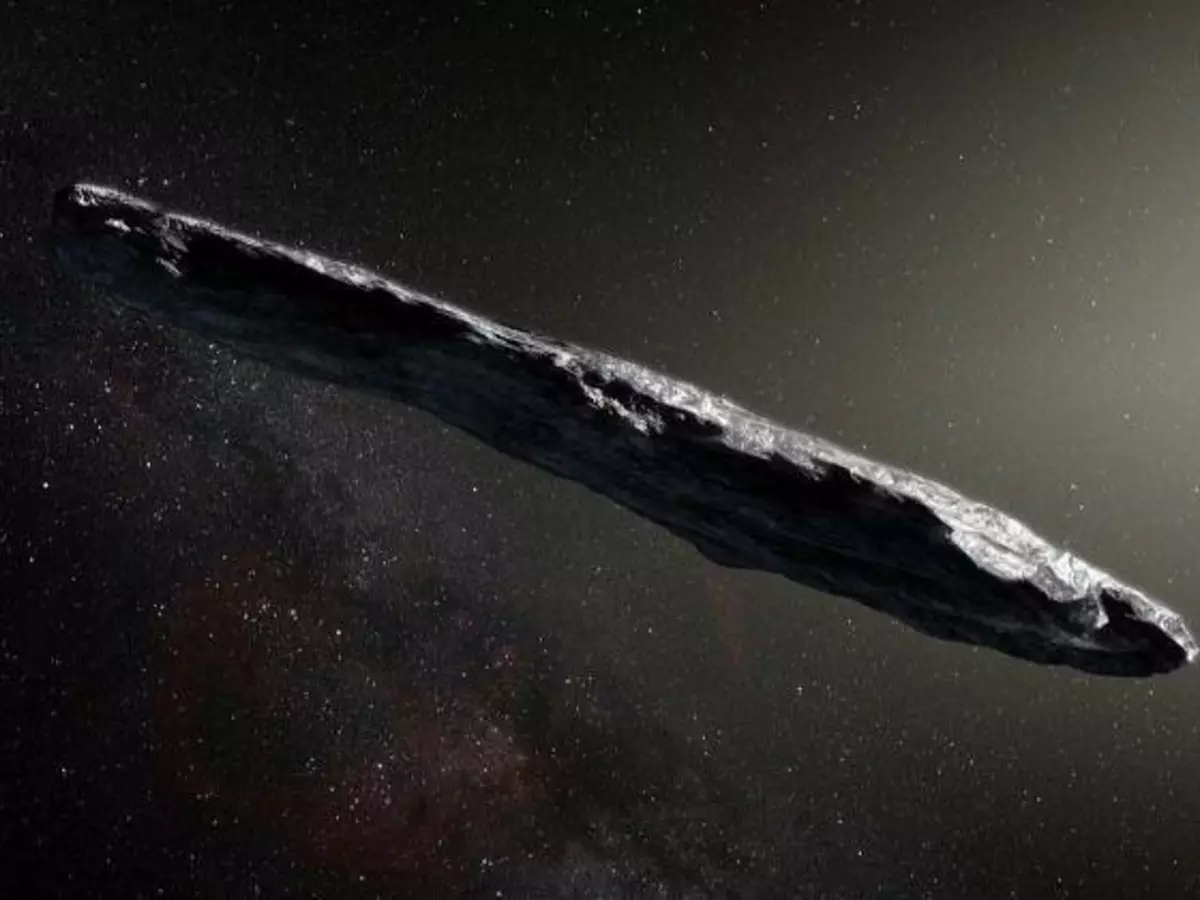Maybe Mankind's Greatest Discovery; Oumuamua Might Be An Alien Probe, And Not The First Visitor
In October 2017, the Panoramic Survey Telescope and Rapid Response System-1 (Pan-STARRS-1) in Hawaii announced that it had discovered an interstellar object inside our solar system. Over a year later we still don¡¯t know exactly what it is though.

In October 2017, the Panoramic Survey Telescope and Rapid Response System-1 (Pan-STARRS-1) in Hawaii announced that it had discovered an interstellar object inside our solar system. Over a year later we still don't know exactly what it is.

Images courtesy: NASA
Oumumua (officially named 1I/2017 U1), was closely followed by scientists around the world after its discovery. For the most part, they were all trying to figure out whether it was a comet or an asteroid. We never really reached a conclusion on that debate; instead, other scientists postulated a third theory.
They speculated that Oumuamua could in fact be an alien probe.
In November last year, two researchers from the Harvard Smithsonian Center for Astrophysics (CfA) released a study titled 'Could Solar Radiation Pressure Explain Oumuamua's Peculiar Acceleration?' In it, Shmuel Bialy and Professor Abraham Loeb cite a few reasons for their theory.
Firstly, Oumuamua has a strangely elongated shape, one not very common for floating objects in our system. Then there's the fact there was no outgassing, which is what happens to comets when they get close to a star. Since they're mostly ice, they heat up and melt to emit gases, also causing them to speed up in the process because of the mass lost.

Oumuamua surrounded by trails of stars that smeared as telescopes tracked it
Oumumua was different, however. It didn't show outgassing and its speed remained constant on approach. On the other hand, it did speed up while leaving our solar system, contrary to everything we know about comets and asteroids.
It's because of this that Bialy and Loeb suggested Oumuamua's acceleration was due to solar radiation. And the only time that can happen is if it had a solar sail. This is a propulsion method still being theorycrafted, one we are years, maybe decades, away from building. So, it could very well be possible, they say, it was sent by aliens as a sort of probe, just like we've done with New Horizons.
Also Read: NASA Scientist Claims Aliens May Have Visited Earth, And We Are Just Too Dumb For Our Own Good
Additionally, Loeb is part of another recent study, this time with CfA fellow John Forbes called 'Turning up the heat on Oumuamua', which suggests that this object may not be the first of its kind in our vicinity, and that interstellar objects regularly enter our solar system and fall into our Sun.
When the rock was first discovered, scientists judged from its trajectory that it was extra-solar in origin, and was already on its way out of our system. On top of that, it's also still unclear over a year later just what it was. So to some scientists, the idea that it is alien in origin isn't impossible. And if we accept that this could be an alien probe, it's not necessary this is even the first one or the last.

"The discovery of 'Oumuamua allows us to calibrate the abundance of interstellar objects of its size, based on the survey time and sensitivity of the Pan STARRS telescopes," the study says. "There should be roughly a quadrillion such objects per star in the Milky Way. A small fraction of these objects pass near Jupiter and kick it enough to get trapped in the Solar System."
Also Read: Scientists Say Oxygen On Alien Planets Doesn't Mean It Will Automatically Have Intelligent Life
"We have found that such objects collide with the Sun once every 30 years, while about two pass within the orbit of Mercury each year. We identified preferred orientations for the orbits of interstellar objects and concluded that at least one of the known Solar System objects is extrasolar in origin."
Thanks to this new knowledge, Loeb says, other telescopes are more likely to discover more objects like Oumuamua in our vicinity. Which could mean we could finally put this question to rest once and for all, and at the very least possibly learn more about the universe beyond our solar system.
